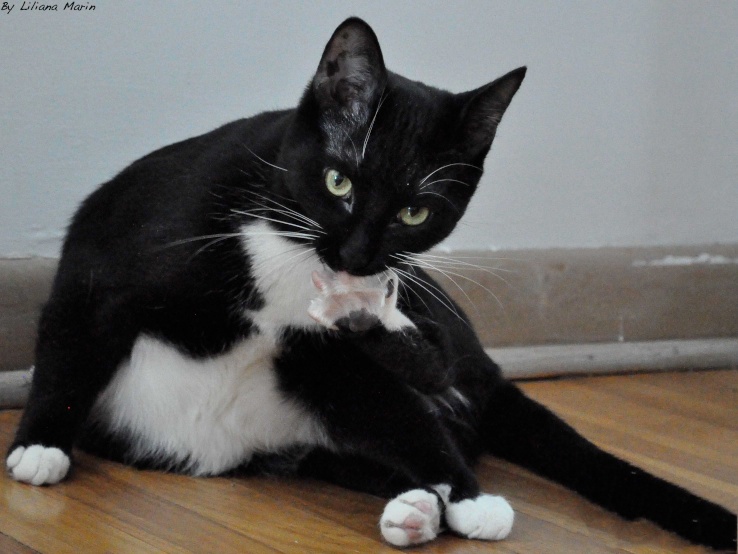Some single indoor-housed cats become anxious when left alone for long periods of time. These cats appear to be unusually sensitive to their surroundings, and may be very attached to their owners.

Here are some signs of "separation anxiety" in cats:
- Excessive vocalization (crying, moaning, meowing)
- Not eating or drinking while owner is away
- Eliminating (often urinations) in inappropriate places
- Vomiting, food or hair often are contained in the vomit.
- Excessive self-grooming
- Destructive behavior
- Exuberant greetings when the owner returns home
If your cat seems to be showing signs of separation anxiety, here are some things you can do:
- Provide perches so the cat can look outside.
- Toys, toys and toys, (toys, prey preference)
- Let your cat "hunt" for food by placing food in a toy that will make the cat work to get the food out.
- Hide food throughout the house so the cat has to find it.
- Leave the radio or TV on, tuned to your usual station.
- Call home and leave a message for the cat.
- Provide a refuge
-
Spend at least 10 minutes daily playing with your cat.

You can find out more about separation anxiety in cats at www.petplace.com.
If the cat still has problems after you have enriched the environment and instituted daily playtime, please see your veterinarian for further advice.
